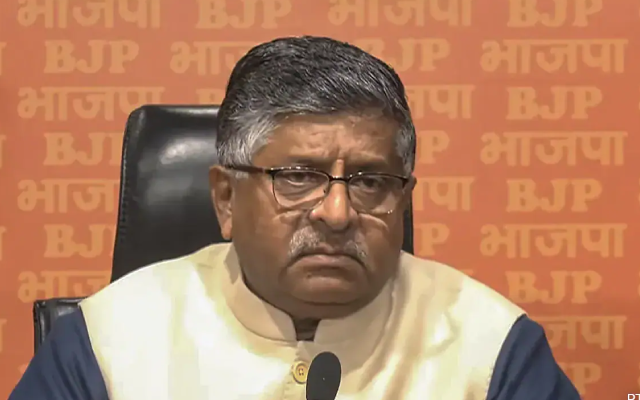
Film: “Tashkent Files”; Director: Vivek Agnihotri; Cast: Mithun Chakraborty, Naseeruddin Shah, Shweta Basu Prasad, Mandira Bedi, Pallavi Joshi, Rajesh Sharma, Vinay Pathak, Pankaj Tripathi, Vishwa Mohan Badola, Prakash Belawadi, Achint Kaur, Prashant Gupta; Rating: ***
Based on true incidents, director Vivek Agnihotri’s “Tashkent Files”, is a fictionalised film with cinematic liberties.
Inform, it is a blend between a courtroom drama and an online game with different task levels. In purpose, while seeking answers to the mysterious death of India’s second Prime Minister, Lal Bahadur Shastri, who died on January 11, 1966, in Tashkent, it implores you, as a citizen of the nation, to question for, “your right to truth”.
The film has a kind of stark simplicity: Apart from a brief set-up and a briefer epilogue, a major portion of the film takes place within the four walls of an inquiry commission which is so akin to a jury room, as nine prominent and responsible citizens headed by politician Shyam Sundar Tripathi (Mithun Chakarobarty) debate on the “common conspiracy theory”, that surrounds Shastri’s demise.
It is an open fact and no denying it, that there have been various theories surrounding the mysterious death. The Shyam Sundar Tripathi Commission is set up after the investigative journalist Raagini Phule (Shweta Basu Prasad) is coerced by an anonymous well-wisher cum source, into writing an article that digs into the nation’s past.
The well-wisher dishes out nuggets of information via a telephonic conversation which appear like stages of an online game.
Soon, Raagini is also roped into the Commission for being a journalist who has done a lot of investigation on the subject. She propels the narrative and drives home her point based on the Mitrokhin Archive II, which is a collection of handwritten notes made secretly by the Russian KGB defector Vasili Mitrokhin.
Dedicated to the journalists of India, the film, on the face of it appears balanced, but the tone and texture of the narrative definitely appear slanted. Sample this; “Gau bhakt, topi pehnewala baba, Kaun the?” This question subtly and surely ignites a sense of underlying brotherhood that forces an ignorant viewer to seek the truth.
And so, on the pretext of speaking the truth, the narrative digs out the bitter and indigestible political history of our country. Also, while smirking at our democracy and our education system, the film makes each one of us feel guilty as it opens a Pandora’s Box but shows us nothing that we are not aware of. And the last frame, stating that the facts mentioned in the Mitrokhin Archives have not been proved or verified till date, clearly shows that the plot along with the dialogues is clever and manipulative.
This is a film where the tension comes from personality conflict, dialogue and body language, not action. The drama within the confines of the claustrophobic room appears forced and staged.
On the performance front, the film is Shweta Basu Prasad’s canvas. She is effective as the ambitious, yet vulnerable Raagini. She holds her steady against the dynamic Mithun Chakraborty, who gives an equally new and varied dimension to his Shyam Sundar Tripathi.
The duo are aptly supported by an ensemble cast which includes; Pankaj Tripathi as Gangaram Jha, Mandira Bedi as the social activist Indira Joseph Roy, Pallavi Joshi on a wheelchair as the historian Aiysha Ali Shah, Rajesh Sharma as a prominent government contractor Omkar Kashyap, Vishwa Mohan Badola as the aging Justice Kurian Abraham, Prakash Belawadi as the senior bureaucrat GK Anantha Suresh and Prashant Gupta as Vivendra Pratap Singh Rana, all members of the commission.
Naseeruddin Shah as the master brain politician PKR Natrajan and Vinay Pathak with a scarred visage as Mukhtar, the person who helps Shweta unearth the mystery in Tashkent, have their moments of onscreen glory.
Mounted with ace production values, the visuals of the film do not boast of any cinematic brilliance. The songs with the lyrics, “saare jahan se achcha” and “sach jalta hain” are lost in the narrative.
Overall, with aggressive pacing, the film is well-researched and potent in nature. But with the timing of its release and the undertones in its messaging, this film appears to be a propaganda film that neither ignites any patriotic fervour nor journalistic appeal.


















